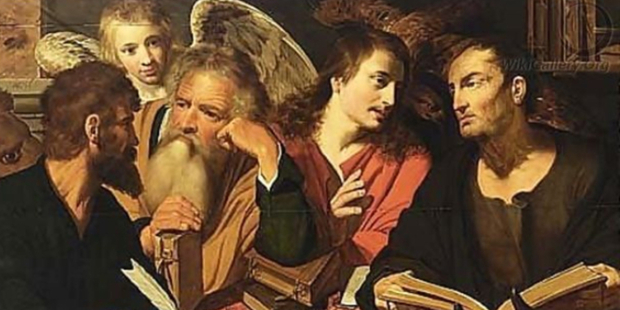John’s Gospel: Answering Questions for the Church, by Dr. Jeff Mirus

If You Can’t Sell Your Hysteria to Adults, Try Kids, by Dennis Prager
September 25, 2019
Trump at the U.N. Rejected Globalism and Socialism. Pope Francis, However … by John Zmirak
September 25, 2019
By Dr. Jeff Mirus, Catholic Culture, Sep 24, 2019
It is commonly said that the gospels of Matthew, Mark and Luke are “synoptic” (providing a synopsis of the life of Christ) but that the gospel of John is “theological” (probing important questions about the Christian Faith). In earlier installments of this series, I have already mentioned that it is important not to push convenient distinctions among the gospel accounts too far: All are called “gospels” not because they are either biographies or theological arguments but because they portray the “good news” of salvation which Jesus Christ brought us through his words and deeds, his life, death and resurrection.
But it is important to remember that the accounts of Matthew and Mark were written relatively early, at least a full generation earlier than the gospel of John, which took final form only after the Church had already enjoyed tremendous growth—about 70 years after Our Lord ascended to His Father. Though some scholars date the final form of Luke’s gospel equally late, that is hardly supported by the events recounted. Even the second volume of Luke’s work, the Acts of the Apostles, recounts no events later than the martyrdom of St. Paul in the mid to late 60s AD.
The significance of this relatively late composition is that while the earlier evangelists were writing primarily to record and spread the good news of Christ as most of the apostles were passing from the scene, John would have been writing primarily for a later Church which was now reflecting back on these events and, certainly, raising important questions about them. It is no surprise, then, that John (the “theologian”) should use his gospel to present extended reflections on key matters like the precise identity and nature of the person of Jesus Christ and the precise identity and nature of the Church’s principal sacramental memorial of Christ, the Eucharist—as well as Christ’s special care of the ongoing Church through the gifts of both the Holy Spirit and the Petrine ministry. ….
Read more at https://www.catholicculture.org




